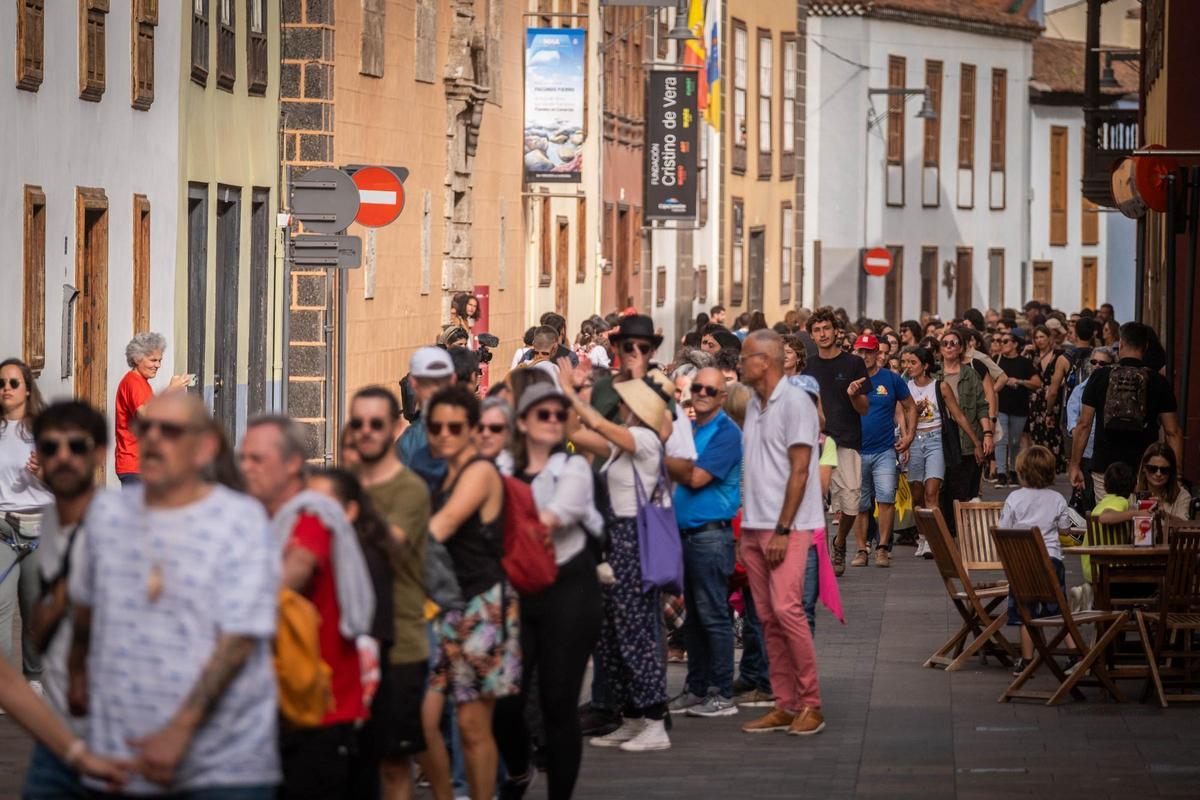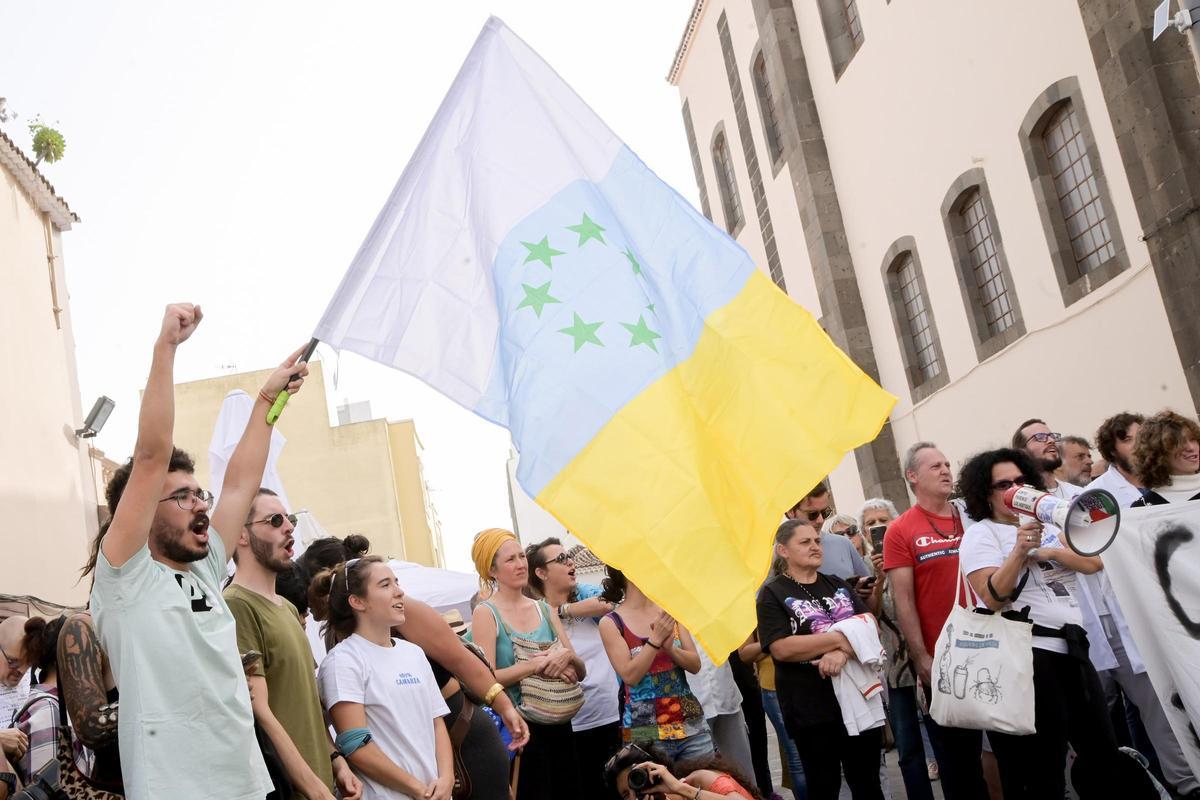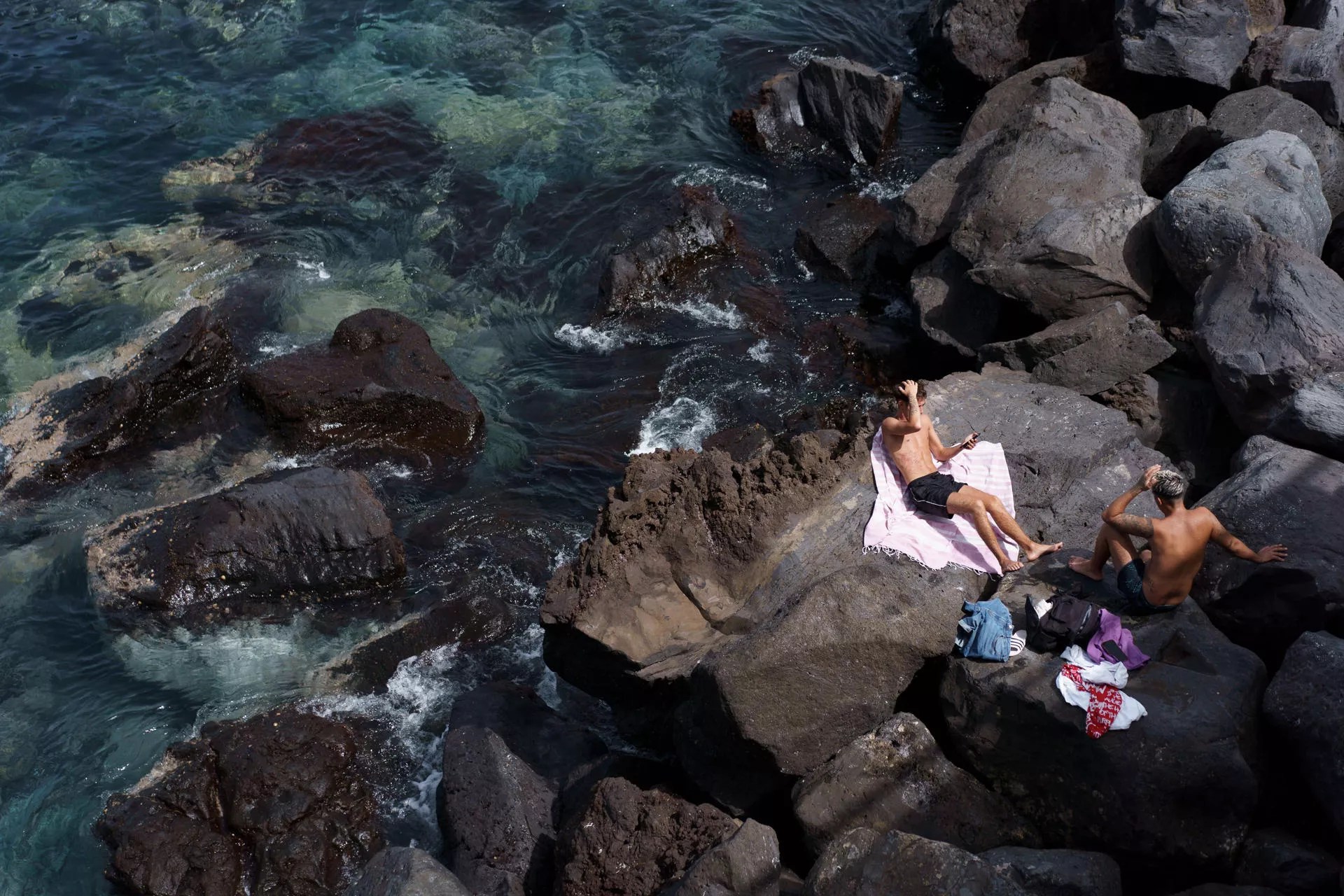Hundreds of people showed their support on Thursday afternoon to a group of activists who have initiated an indefinite hunger strike to demand the immediate approval of a tourist moratorium in Canary Islands.
The protesters, gathered by the Church of La Concepción in La Laguna, also demand the halt of construction works for a hotel near La Tejita beach and the tourist urbanization project, Cuna del Alma, near Puertito de Adeje, as well as the establishment of permanent citizen assemblies to define the future development model of the Archipelago.
They have read a manifesto warning that “Canary Islands are reaching their limit”, just as the patience of the citizens is wearing thin, and believe that the rally on Saturday, 20th of April will be a “turning point” to change a “suicidal and unsustainable” tourism model characterized by “poverty wages”, lack of housing, and environmental “deterioration”.
They have emphasised that “the political class” has started to “tremble” in the face of a “powerful and unstoppable” movement and have criticised the President of the Canary Islands, Fernando Clavijo, who wants to make the island’s society believe that he supports the rally when in reality he favours the development of tourist projects, tries to prevent the demolition of the RIU hotel in Fuerteventura, and allocates 20 million in aids to promote tourism.

Part of the human chain that supported the commencement of the hunger strike of several activists advocating for a new development model. / Andrés Gutiérrez
They have also stated that the citizens want to “be part of a real process of change” as politicians are leading society “to the edge”, and while they reject ‘tourism phobia’ they acknowledge that they have had to “raise awareness” among tourists about the situation of the archipelago because the political class “ignores” them.
In this regard, they have described the hunger strike they have been forced into by the politicians with their “suicidal” policies as “historic” and inertness, which has pushed both the territory and the island’s inhabitants to a “critical situation”.
The manifesto concludes by condemning an “outdated predatory model” and advocating for the value of the hunger strikers. “We put our lives on the line to stop the decline”, it summarises.
Victor Martín, spokesperson for the ‘Canary Islands are reaching their limit’ platform, has lamented that the Government of the Canary Islands has not been open to negotiation after the ten-day ultimatum issued last week and has indicated that the hunger strike will be halted if there are written guarantees that the projects in La Tejita and Puertito de Adeje will be halted and an immediate moratorium will be implemented.
Victor Martín, spokesperson for the ‘Canary Islands are reaching their limit’ platform, regrets that the Government of the Canary Islands has not engaged in negotiations to prevent the indefinite hunger strike
[–>
Regarding those two specific projects, he stated that “it is a matter of political will, not legality, norms, or laws”, among other things because in the case of La Tejita, “the law is being violated” since “they have encroached on the public maritime land space and the Coastal Demarcation says they do not have the authority to carry out the works and yet they have started” –the promoting companies cite up to three judgments from the Court of Justice to resume the works–.
Regarding Cuna del Alma, he lamented that the Government has tried to “divert attention” to the Adeje City Council by letting two of the three suspensions expire and shifting the responsibility to a council that, in collaboration with the Island Council, has turned planning “into a speculation tool in the south of Tenerife”.
Martín highlighted that Canary Islands cannot continue down this path, facing energy, climatic, and water crises, and argues that activity must be “halted” to define the future with “serenity”.

The flag of the seven green stars, emblem of the independence movement, was prominently displayed at the rally in La Laguna this Thursday. / Europa Press
With regards to the tourist moratorium, he has stated that “it must involve maximum citizen participation”, i.e., through popular assemblies and not just a meeting of experts and politicians on one side, and concurrently, that it is evident that the regional government is committed to “halting this excessive expansion” which poses a threat to natural spaces, ecosystems, and the quality of life of residents.
[–>
The demonstrators, who formed a human chain in support of the hunger strikers, shouted messages such as “Canary Islands are not for sale, they are loved and defended”, “cement cannot be eaten”, “capitalism thrives on tourism” or “corrupt politicians out of the Canary Islands”.
















